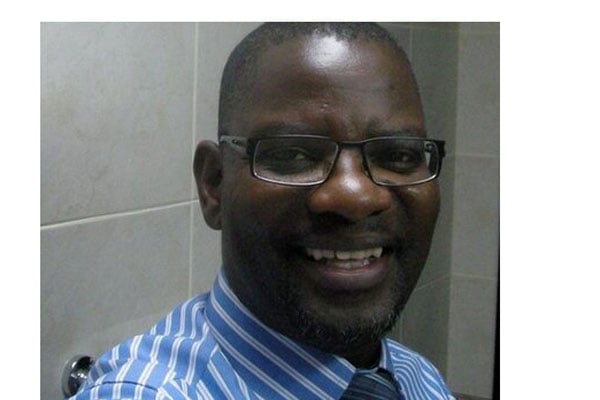Prime
Can Ssenfuka cure cancer and did he cure Katutsi’s diabetes?

Author, Musaazi Namiti. PHOTO/FILE
What you need to know:
- Ugandans who read newspapers got to know Mr Ssenfuka’s work in June 2020 when Sunday Monitor published an article in which retired Justice John Bosco Katutsi spoke about his battle with diabetes and how he managed — in his own words — to have it cured, using herbal medicine prescribed by Mr Ssenfuka.
Terefayina TV reported this week that herbalist David Ssenfuka, who claims to cure diabetes and cancer, had stopped selling his herbal concoctions to people suffering from the two diseases due to threats from the Uganda Cancer Institute.
The TV station reported that Mr Ssenfuka, whom his patients call a doctor though he calls himself a researcher, does not want to endanger his life and to be jailed.
Ugandans who read newspapers got to know Mr Ssenfuka’s work in June 2020 when Sunday Monitor published an article in which retired Justice John Bosco Katutsi spoke about his battle with diabetes and how he managed — in his own words — to have it cured, using herbal medicine prescribed by Mr Ssenfuka.
Justice Katutsi claimed that tests he had years after using the herbal drug showed he no longer had diabetes.
I am not a healthcare professional, and my views in this article are based on medical literature I read from time to time as a journalist with a keen interest in heath matters. I have also taken care of patients suffering from non-communicable diseases.
Diabetes and cancer are some of the deadliest non-communicable diseases and have mocked Western medicine’s attempts to treat them effectively.
A pertinent question we have to ask is how the pharmaceutical industry in the rich world, where billions of dollars are poured into research to develop drugs, fails to find a cure for these diseases yet a man or a woman with no training in medicine — and may struggle to define the exact nature of the diseases in question — can cure them.
Traditional medicine does not examine patients in the real sense, and that is probably its main weakness. If you went to a herbalist and lied, for example, that you are suffering from lung cancer, they would give you their herbal medicine right away.
Herbalists do not use sophisticated diagnostic equipment such as magnetic resonance imaging (MRI), CT scan, ultrasound, etc used by Western medicine. How do they know what they are treating?
If a herbalist like Mr Ssenfuka says he treats cancer, he should have irrefutable evidence of the efficacy of his herbal medicine and, crucially, the types of cancer that medicine cures — because there are more than 200 types of cancer.
Back to Justice Katutsi: His claims raised more questions than they answered. He, for example, said his blood glucose readings went from 11.9 mmol/L and 13 mmol/L (UK standard) or 214 mg/dL–234mg/dL (US standard) to 3.5mmol/L–5.7mmol/L (63mg/dL–102mg/dL), which is good as it suggests that his blood glucose is well controlled.
However, having normal readings does not necessarily mean that a diabetes patient no longer has diabetes. Justice Katutsi would have to eat a fairly large burger or KFC and guzzle two bottles of Coca Cola and then, two or three hours later, he checks his blood glucose to see if it is as normal as that of a person with no diabetes.
If he and other patients (assuming they are very many) who have used Mr Ssenfuka’s herbal medicine for diabetes did this many times and their results show normal blood glucose readings, then the herbal medicine probably cures diabetes.
The problem with Mr Ssenfuka’s claim and that of Justice Katutsi is that they cannot stand up to close scrutiny.
A drug’s efficacy is not determined by anecdotal evidence. If it treats a headache, it should provide relief to at least 90 per cent of the people using it, not several people.
Over to you Mr Ssenfuka.
Mr Namiti is a journalist and former Al Jazeera digital editor in charge of the Africa desk
[email protected]
@kazbuk


